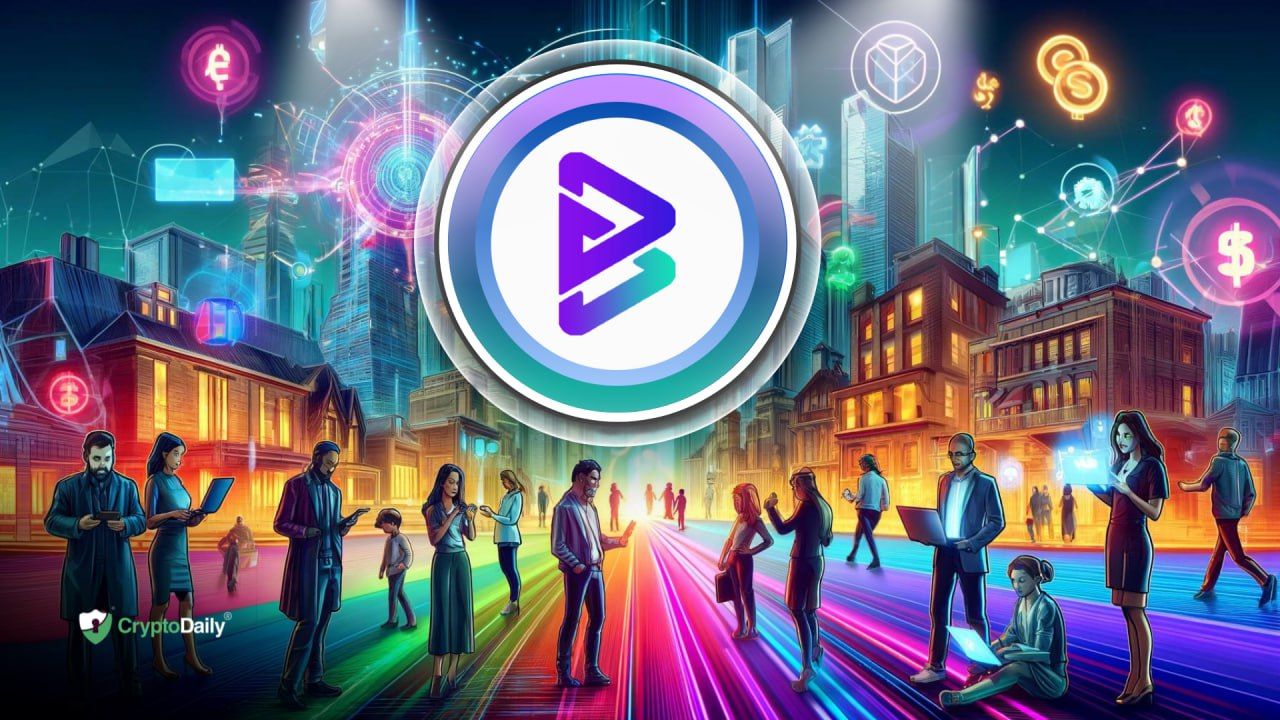Imagine a digital billboard screen that can capture your features as you approach it and can then show you an ad based on who you are and what your personal preferences are!
A highly intelligent screen that can pick up on facial and body features, the brands you wear, whether you are male or female and even your emotions!
Bidooh’s sci-fi like digital advertising billboard screens can do this and much more. The idea for these screens came when the two co-founders of Bidooh watched a film together. The film Minority report is set in the future and the inspirational moment came when Tom Cruise walked towards a screen in a store and the screen recognised him and changed to deliver ads to his own personal preferences.
18 months later and the co-founders Abdul Alim and Shaz Mughal have developed their very own sci-fi like intelligent digital advertising billboard and they are now in the process of launching their company Bidooh on the blockchain.
“WAIT!”, I hear you ask. Such groundbreaking technology is pretty amazing but “WHAT ARE THE IMPLICATIONS FOR PERSONAL DATA PRIVACY?”
Rest assured that Bidooh takes its responsibilities extremely seriously.
Firstly, there is a difference between the ‘facial analysis’ technology of Bidooh’s screens and the “facial recognition” technology that will be used by subscribers who use the Bidooh app.
Facial analysis
Cameras within Bidooh’s digital screens are able to recognise distinct features of the human face. These features include hair colour, beards, moustaches, sunglasses/glasses, brand recognition, height, body shape and emotions. The inbuilt cameras are able to tell to an extremely high percentage of probability (99%) that a face captured by them is male or female.
However, it must be noted that the technology employed here DOES NOT RECOGNISE WHO THIS PERSON IS AND DOES NOT COLLECT OR STORE ANY PERSONAL DETAILS. It is only a way for advertisers to be able to capture demographics which can be used by them to effectively target their chosen audience.
All data is anonymised so that there is nothing that will identify an individual — this whole process is totally 100% GDPR compliant.
Facial recognition
On the other hand, the facial recognition tech that Bidooh has developed is able to recognise facial features to such an incredible extent that faces can be matched with Facebook profiles, the person can be recognised, and ads can be delivered tailored to that person’s preferences — all in a matter of moments!
Obviously not all people are happy with having their data collected and ‘choice’ is an overriding principle that is enshrined in our society.
Bidooh app opt-in
However, the big difference here is that a person wishing to take advantage of facial recognition must first download the Bidooh mobile app and then MUST GIVE THEIR PERMISSION (in-app) in order for this advanced recognition to take place. This permission can be revoked at any time by the app user and is therefore a safe way of ensuring that personal privacy is totally adhered to.
The way the process works is that a user wishing to take full advantage of the opportunity of having their face recognised must first agree to Bidooh’s conditions and the accompanying privacy policy. Without doing this the user cannot actually use the app, therefore ensuring that recognition can’t take place through error.
What kind of data is collected?
- Identity data (name, address, DOB)
- Contact data (email address and telephone numbers)
- Technical data (the kind of device and technology you are using including IP address, browser, operating system, platform etc.)
- Marketing and communications data (marketing preferences from Bidooh and third parties plus communications preferences such as via Facebook or Twitter etc.)
Bidooh is legally compliant in collecting this information by conforming to the ‘General Data Protection Regulation 2016/679’.
So why agree to be recognised?
So what exactly is in it for someone who grants permission to have their face recognised by Bidooh’s high tech software?
The platform pays a mobile app user tokens just for walking towards a Bidooh billboard screen and then adds to these tokens if the user interacts with the ad in some way (such as touching certain parts of the screen or following links etc.) Different ads offer more or less tokens and some will offer other rewards such as prizes and vouchers.
Tokens earned through the app in this way can then be used in participating outlets such as restaurants, stores and online retailers — the possibilities here are vast. The tokens spent in these businesses could then be used by them to buy even more advertising space, thereby creating a business to client loop that is mutually profitable and advantageous to both parties.
Conclusion
With the use of Bidooh’s high tech digital screens, demographics for digital billboard advertising are about to become extremely comprehensive and reliable. Advertisers will be able to make use of a wealth of data, never available to them before, and will be able to laser target their adverts so that they reach the precise audience they are aimed at.
When Steven Spielberg made Minority report he was attempting to portray a futuristic sci-fi world that was far beyond the capabilities of our present day technological advances. Bidooh has brought that futuristic dream into present day reality and stands to revolutionise the DOOH (Digital Out of Home) industry in its entirety.
Disclaimer: All the above views are my own and should in no way be taken as financial advice. All those wishing to invest in the crypto market should do their own research or use the services of a fully certified financial advisor.
Investment Disclaimer








